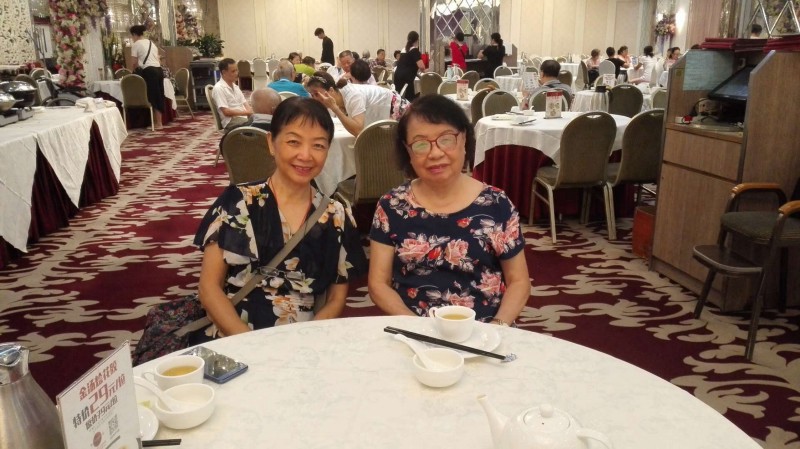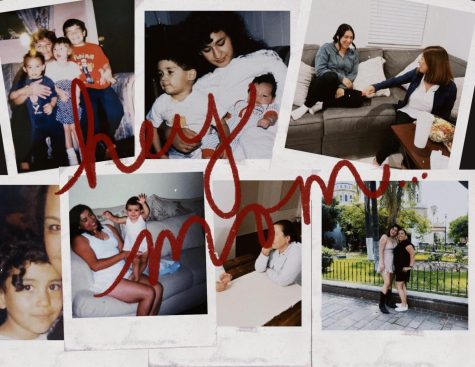My Mother was a Child Bride
How my mother’s decisions changed her life
Guo Fang, my mother, once a child bride, has been a teacher for thirty years. She is a diligent and hard-working woman. Now she is 93 and living a good life with her eldest daughter, Jiansheng, in Guangzhou, China. But life was not always easy for Fang. At the young age of seven shewas a child bride; a girl taken into another family as a daughter-in-law-to-be. It was a miserable life arranged for her by her grandfather — but she never gave up hope. She made two important decisions to change her fate.
“When I was a child bride, I worked every day for the house, helping the adults in the family. Going to the mountain, and cutting the weed and small twigs were my routine jobs. And I accepted because I thought I had to do it without other choices,” Guo Fang said.
She remembered what it was like to work so hard and said, “How relaxed it would be if I didn’t need to do it just for one day.”
In ancient China, some traditions and customs were unfair and unmerciful towards girls in society, especially in the undeveloped rural areas. Guo Fang was one of the victims of this tradition and sold as a child bride to a landlord’s family located in a mountain village in the Northeast of Guangdong province, China.
Though her family was wealthy and possessed quite a lot of land that they leased to the farmers — her grandfather and father only cared about the family boys. Boys could go to school and didn’t need to do any household chores. On the contrary, girls were looked down upon by the family and had no educational opportunities. Because girls were assumed to be married out like the “throwing water” when growing up — a Chinese saying — almost all the families would sell out their girls at about 6-years-old to another boy’s family as a child bride. It’s a tradition and a fate. Unfortunately, Fang was unable to avoid her grandfather’s unfair life arrangement, and was sold. She lived with the boy’s family until she was old enough to marry him, Xinzhou Liu, 12, who was five years older.
Every day, Xinzhou Liu — her future husband — went to school and didn’t need to do any household chores, even though he was willing to do so. Guo Fang, now only a 7-year-old girl, was required to do the housework. Every morning, she had to get up early to call the buffalo to pee; saving the urine in a big bucket for fertilizing use. Later, Fang took the buffalo to eat the grass around the mountain. When she grew a little older, she was required to carry freshwater from the nearby creek with two big buckets before other people started washing clothes there. She also had to go to the mountains to cut weed and small twigs and bring them home to make a fire for cooking. The load was heavy, up to 35 Kg (77lbs), and it took about one or two hours walking home without wearing shoes.
“My feet were always dark with many small cut holes, and I could never clean my feet white …I once had a pair of shoes, but I had never worn it to the mountains, only kept it for some important family gatherings … “I felt numb on bare feet, but sometimes a cut was still painful.”
Bare feet were her daily life.
She needed to work at home to cook, clean the house and plant vegetables and grain in the farmland. She eventually became the main house laborer in the family. “My future mother and father-in-law were all in Indonesia to earn a living; only the old cataract blind grandma was at home with me and the boys, so I was the main laborer for the family,” Guo Fang said. “Though the family treated me well, the old custom and tradition existed for a long time.”
One day when she passed by the primary school, she saw some boys studying. Encouraged by her bravery and passion for knowledge, she went directly to the school and asked the teacher for a chance. Knowing that she was a child bride, the teacher was sympathetic and promised her to study with other boys. He also told her that they had some evening and weekend classes. Guo Fang started from first grade and then went through grades two, three, four, and five, doing so in a matter of four years by part-time study; she also listened to the radio for the news and stories.
By consistently studying hard, she excelled in writing papers with her vivid description and expression. Most of her creativity was from her working and life experience. The Chinese teacher always asked her to read her papers aloud in the class for other classmates as an example. “When I was a child bride, I chose to request studying in school with the boys; it was the most important and positive decision I made in my life.” Guo Fang’s decision to become educated was the beginning of her life-changing.
Guo Fang’s future husband, Xinzhou Liu, left China for Indonesia when he was 15, and Guo Fang was 10. His family planned for him to come back to China and marry Guo Fang when they both grew up. Due to the war — which lasted about eight years — Xinzhou Liu couldn’t return. He married another girl in Indonesia while my mother was still waiting for him and taking care of Liu’s family. When the war was over, Xinzhou Liu arranged his trip back to China. He told my mother that his new wife was pregnant, and a baby daughter would be delivered soon.
When Xinzhou Liu left for Indonesia again; the engagement between him and Guo Fang came to an end. Her heart was utterly broken. Many girls had similar situations and often chose to stay with the same family for the rest of their lives. My mother, Guo Fang, made an important decision to leave Xinzhou Liu’s family and start a new life.
In the spring of 1949, she went to the biggest town in the neighboring county, and found a job as a word-collecting assistant at a newspaper printing factory. Because of her hard work and talent, the factory offered her an opportunity to take a fast-learning course at Nanfang University in the metropolitan city of Guangzhou, China. After graduating from the university, she worked as a secretary in the manager’s office for a large provincial company. There she met her future husband, my father. They married six months later. Guo Fang found her real love and they built a happy family together with three lovely daughters. She said, “At the age of 21, while my desire for love and marriage was gone, I was determined to leave Liu’s family. It completely changed my fate, and I had a new life with hope, releasing and refreshing.”
Several years later, Fang obtained a job as a Chinese teacher at a primary school and was delighted with the granted offer. She loved her students and was eager to help them growing up. Fang gave food and clothes to her students from low-income families and happily worked at the school for 30 years. She retired from her beloved teacher’s career with a sufficient pension and received high respect from the society. When she talked about her miserable childhood, my mother didn’t complain about her grandfather. “It was a feudal and inhuman tradition at that time. I was fortunate to change my life by myself,” she said.
The government has abolished the tradition of child-brides since the end of 1949. Fang was the last generation of child brides in Old China. Though all that she has been through, she remains positive and optimistic.
“I am the only child bride who is still alive at such an old age in my hometown village. It was very difficult for the child brides to change their lives, arranged by their parents or grandparents; I was an exception … My life has just proved a proverb ‘Where there’s a will, there’s a way,’ and ‘When a door is closed, a window is open for you.’” — Guo Fang








